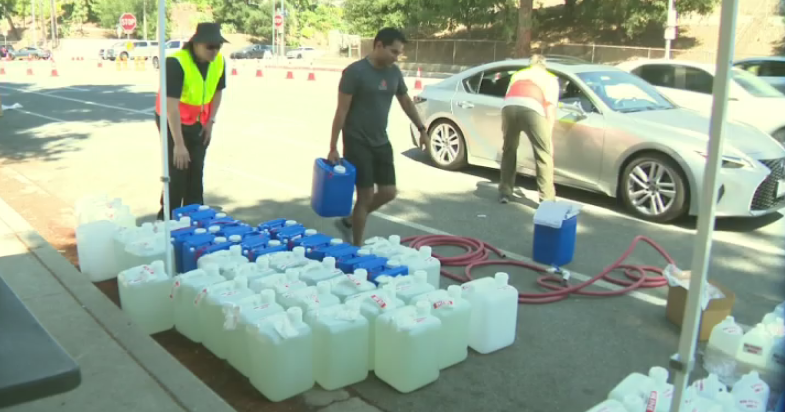What Happened to the EasyJet Pilot Caught Drunk and Naked in a Hotel?

Understanding the Consequences of Pilot Misconduct
The recent incident involving an easyJet pilot who allegedly exhibited drunken and naked behavior at a luxury hotel has raised significant concerns about airline safety and professionalism. Such actions not only jeopardize the reputation of the airline, but they also pose serious questions regarding the oversight of pilots and the protocols in place to ensure passenger safety. This article delves into the implications of this incident, the importance of professionalism in aviation, and how airlines are addressing such misconduct.
The Incident: What Happened?
On August 4, prior to his scheduled flight from Cape Verde to Gatwick Airport, the easyJet pilot reportedly engaged in a night of heavy drinking at the Melia Dunas Beach Resort and Spa. Witnesses claim that around 2:30 AM, he removed his clothes and wandered through various areas of the resort, including the reception and gym, in a state of undress and intoxication. The incident occurred just 36 hours before he was due to operate a flight, prompting immediate action from easyJet management.
The Aftermath: Immediate Actions Taken
Following the incident, easyJet confirmed the pilot was "immediately stood down" pending an investigation. The airline emphasized that the safety of passengers and crew is their highest priority. A source within the airline expressed disbelief at the pilot's conduct, labeling it as "breathtakingly unprofessional." Such actions can lead to severe ramifications not only for the pilot but also for the airline's operational integrity.
The Importance of Professionalism in Aviation
Professionalism is critical in the aviation industry, as pilots are entrusted with the safety of hundreds of passengers. The actions of one individual can tarnish the reputation of an entire airline and raise questions about safety protocols. Airlines implement strict regulations and training programs to ensure that pilots maintain the highest standards of conduct, both on and off duty. Incidents like the one involving the easyJet pilot highlight the need for ongoing scrutiny and enforcement of these standards.
Safety Protocols and Regulations
Airlines worldwide adhere to stringent safety protocols designed to prevent incidents of misconduct. These include:
- Regular Training: Pilots undergo rigorous training to ensure they are prepared for any situation, including those requiring sound judgment and decision-making skills.
- Alcohol and Drug Policies: Most airlines have strict policies regarding alcohol consumption and substance abuse. Pilots are often subject to random testing to ensure compliance.
- Reporting Standards: Employees are encouraged to report any incidents or concerns regarding pilot behavior, allowing airlines to take immediate action when necessary.
Potential Consequences for the Pilot
In light of the incident, the easyJet pilot faces severe consequences, including potential termination and loss of his pilot's license. The aviation industry does not take such misconduct lightly, and the repercussions can include:
- Loss of Employment: Immediate suspension often leads to termination, especially in cases of gross misconduct.
- Licensing Issues: The pilot may face challenges in retaining his flying license, affecting future employment opportunities.
- Public Reputation: Such incidents can tarnish a pilot’s reputation, making it difficult to find work in the industry again.
Airline Reactions to Pilot Misconduct
Airlines are increasingly aware of the need to maintain a safe and professional environment. The swift response by easyJet underscores the seriousness with which they treat pilot behavior. Here are some ways airlines address misconduct:
- Immediate Investigation: Airlines often conduct thorough investigations into any reported misconduct to assess the facts and determine appropriate action.
- Reinforcement of Policies: Following incidents, airlines may reinforce their policies regarding alcohol and behavior expectations, ensuring that all employees understand the consequences of their actions.
- Training and Awareness Programs: Many airlines implement training programs to promote awareness and understanding of the importance of professionalism, both in the cockpit and in public settings.
Public Perception and Trust in Airlines
Incidents like the one involving the easyJet pilot can significantly impact public perception of an airline. Passengers rely on airlines to prioritize their safety and well-being, and breaches of trust can lead to a loss of business. It is crucial for airlines to communicate effectively with the public following such incidents.
Restoring Trust
To restore public trust after an incident of this nature, airlines can take several steps:
- Transparent Communication: Airlines should communicate openly about the steps they are taking in response to the incident, including any disciplinary actions and changes to policies.
- Reinforcement of Safety Culture: Airlines must continuously emphasize their commitment to safety and professionalism through campaigns and employee training.
- Engagement with Passengers: Actively engaging with passengers through surveys and feedback can help airlines gauge public sentiment and address concerns.
Conclusion: The Importance of Accountability in Aviation
The incident involving the easyJet pilot serves as a stark reminder of the importance of accountability in the aviation industry. Pilots hold significant responsibilities, and misconduct can have far-reaching effects on safety and public confidence. It is vital for airlines to maintain rigorous standards and act decisively when those standards are violated. As the industry continues to evolve, the commitment to professionalism and safety must remain at the forefront of airline operations.
FAQs
What are the consequences for pilots who engage in misconduct?
Consequences can include suspension, termination, and potential issues with maintaining their pilot's license, affecting future employment opportunities.
How do airlines ensure pilot professionalism?
Airlines implement strict training programs, alcohol and drug policies, and encourage reporting of any incidents to maintain high standards of professionalism.
What steps can airlines take to restore public trust after an incident?
Airlines can engage in transparent communication, reinforce their safety culture, and actively seek passenger feedback to address concerns and restore confidence.
Final Thoughts
As the aviation industry navigates challenges of trust and safety, the recent easyJet incident serves as a pivotal reminder of the importance of professionalism. What measures do you believe should be implemented to prevent such incidents in the future? #AviationSafety #PilotProfessionalism #EasyJet
```Published: 2025-08-11 20:39:23 | Category: News


